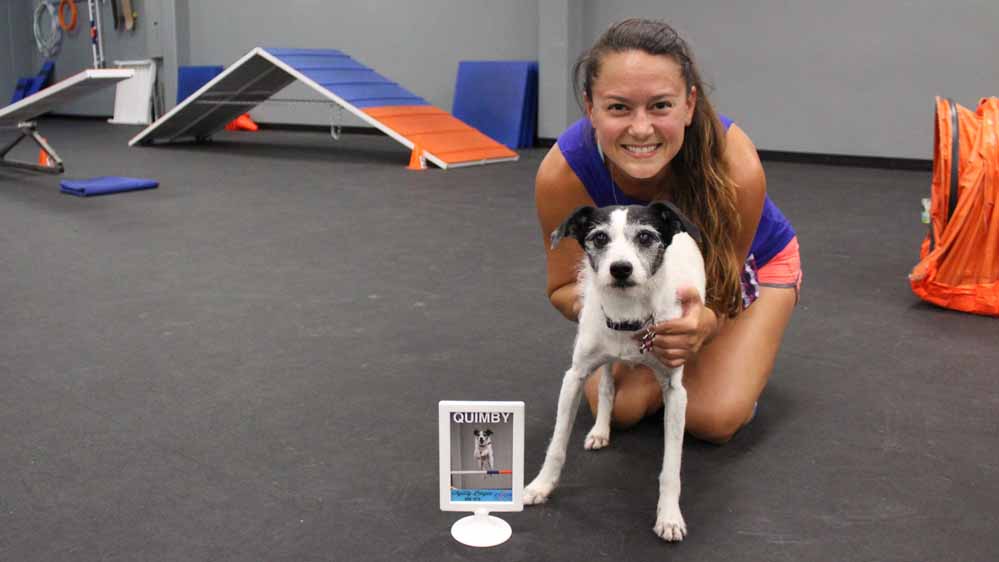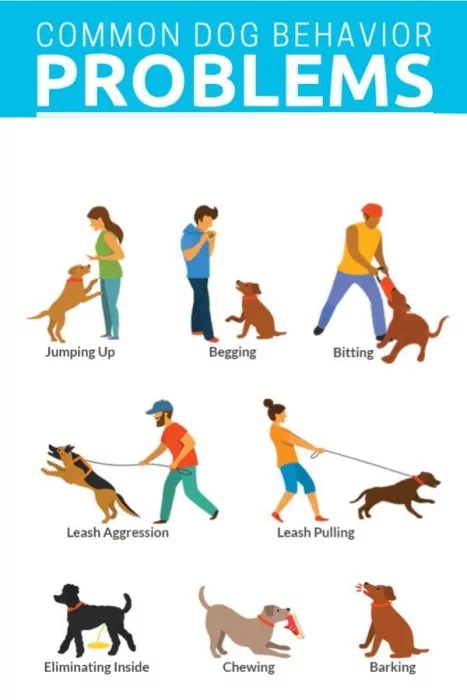Professional Dog Training For Dogs: Building Better Habits One Action at once
Professional Dog Training For Dogs: Building Better Habits One Action at once
Blog Article
Leading Dog Educating Methods for every single Stage of Your Pet's Life
Effective dog training is crucial at every stage of a pet's life, as each phase provides distinct difficulties and possibilities for development - Dog Training For Dogs. From the fundamental bonding methods required for puppies to the tailored approaches required for elderly pet dogs, understanding these vital periods can considerably enhance the human-animal bond. It is crucial to acknowledge that training should progress together with a pet dog's development, ensuring that techniques stay pertinent and effective. What details methods can be employed to attend to the varying needs of your pet dog as it matures? The answer may shock you.
Puppy Training Fundamentals
Puppy training fundamentals lay the foundation for a well-behaved grown-up dog and involve a number of essential parts that should not be forgotten. The preliminary phase of training concentrates on establishing a strong bond in between the puppy and its owner, which is crucial for efficient interaction. Socialization is vital; revealing young puppies to numerous atmospheres, people, and other pets aids them establish self-confidence and versatility, minimizing the possibility of behavior problems later in life.
Fundamental commands, such as sit, remain, and come, develop the structure of obedience training. Making use of positive support techniques, such as treats and appreciation, encourages desired behaviors and cultivates a positive discovering experience. Consistency in commands and training sessions is vital, as pups grow on routine and framework.
In addition, residence training is a necessary element of pup training. Establishing a routine schedule for shower room breaks and making use of designated areas can assist minimize accidents and promote great habits. On the whole, a well-rounded strategy to puppy training, incorporating socialization, house, and obedience training, establishes the phase for a well-adjusted grown-up dog, making certain a harmonious relationship between the animal and its owner.
Teenage Actions Monitoring
As young puppies mature right into teens, their habits can transform significantly, often providing brand-new difficulties for proprietors. This developing stage, generally happening in between 6 months and 2 years, is noted by enhanced power levels, interest, and a growing sense of independence. Comprehending these modifications is critical for efficient behavior monitoring.
Adolescents may exhibit rebellious tendencies, such as overlooking commands they previously understood or involving in harmful habits. Consistency in training stays critical; enhancing discovered habits via positive support can help neutralize these difficulties. Brief, appealing training sessions are important to preserve their rate of interest and focus.

Additionally, developing a structured routine can considerably improve an adolescent pet dog's sense of safety and security. Regular exercise is crucial to transport their power favorably, minimizing the chance of unwanted behaviors. By utilizing these techniques, proprietors can properly browse the complexities of teen habits, fostering a well-adjusted, satisfied canine friend.
Grown-up Pet Obedience Techniques

Positive reinforcement continues to be a crucial technique; satisfying etiquette with deals with, appreciation, or play urges conformity. Uniformity is essential; the same commands and rewards ought to be utilized by all family participants to avoid confusion.
Including training right into day-to-day routines can also work. For example, technique commands throughout strolls or dish times, allowing training to mix flawlessly into everyday life. Engaging in structured activities, like dexterity training courses or obedience courses, can further enhance a dog's skills while providing important socialization opportunities.
It is essential to recognize that adult dogs may also show stubbornness or complacency. Readjusting training strategies to keep their rate of interest, such as varying rewards or introducing brand-new commands, can aid endure inspiration. Generally, a continuous commitment to obedience training will certainly cultivate a balanced and mannerly adult dog.
Elderly Pet Dog Adaptation Strategies
Recognizing the one-of-a-kind demands of senior dogs is vital for guaranteeing their comfort and well-being. Discover More Here As pets age, they may experience a decline in flexibility, vision, and cognitive feature, necessitating customized adaptation techniques.
First, consider changing the living atmosphere. Ensure that the home is secure and easily accessible; eliminate challenges and give non-slip surface areas to stop drops. Additionally, take into consideration using ramps or actions to aid them access their preferred spaces.
Second of all, exercise needs to be gotten used to make up reduced endurance and joint health and wellness (Dog Training For Dogs). Participate in shorter, extra regular strolls, and incorporate mild tasks like swimming, which can be helpful for arthritic joints
Moreover, psychological excitement stays critical. Use basic puzzle toys or take part in scent work to keep their minds sharp, while staying clear of overwhelming tasks that might frustrate them.
Finally, normal vet check-ups are important to check wellness changes and adjust care regimens as necessary. By implementing these adaptation strategies, you can improve the lifestyle for your elderly pet, guaranteeing they age beautifully and comfortably.
Lifelong Learning and Enrichment
While canines of all ages take advantage of learning and mental excitement, long-lasting enrichment is specifically vital for keeping cognitive wellness and psychological wellness in both senior and younger dogs. Involving tasks not just improve a canine's lifestyle but additionally reinforce the visit the website bond in between the pet dog and its owner.
Enrichment can take various kinds, consisting of interactive playthings, challenge feeders, and scent work, which boost a pet dog's detects and motivate analytical. Regular training sessions, including brand-new commands or techniques, keeps their minds sharp and advertises a sense of accomplishment. Socializing with various other canines and people is just as crucial, as it helps protect against behavior issues and cultivates flexibility.
Furthermore, incorporating workout into a dog's regimen is vital for overall wellness. Activities like dexterity training, fetch, or long strolls supply both physical and psychological stimulation, making certain pet dogs remain delighted and engaged.
Last but not least, think about differing the environment by presenting new places for playdates or walks. This adjustment can reignite a canine's inquisitiveness and interest for expedition. Lifelong knowing and enrichment not just contribute to a meeting life but likewise advertise a harmonious connection with your canine friend.
Final Thought
Efficient pet training strategies evolve throughout a dog's life, dealing with the special requirements of each developing phase. Highlighting routine mental stimulation, socialization, and physical exercise fosters a balanced more tips here and fulfilling life for dogs.
Efficient pet training is essential at every stage of a dog's life, as each stage offers special obstacles and chances for growth.Puppy training fundamentals lay the groundwork for a mannerly grown-up pet dog and include a number of key components that need to not be forgotten. On the whole, a well-rounded strategy to puppy training, including obedience, residence, and socializing training, sets the phase for a well-adjusted adult dog, making certain an unified relationship in between the animal and its owner.
Several dog owners might discover that grown-up canines, while typically even more steady in behavior than their teenage counterparts, still call for constant training to maintain obedience and great manners.Effective pet training techniques advance throughout a pet dog's life, addressing the one-of-a-kind requirements of each developing stage.
Report this page